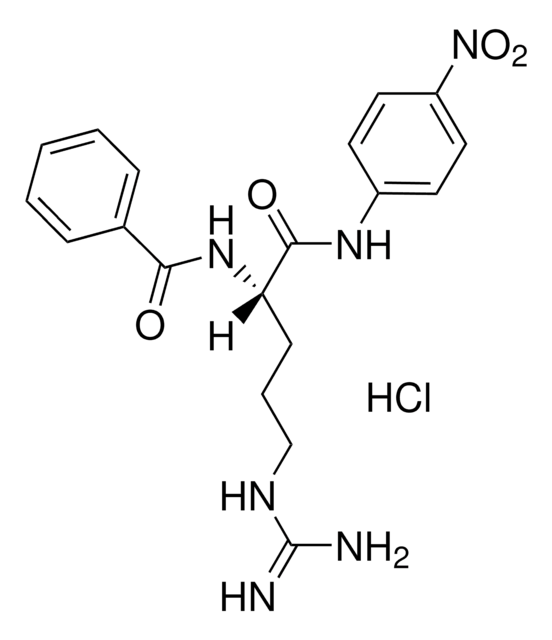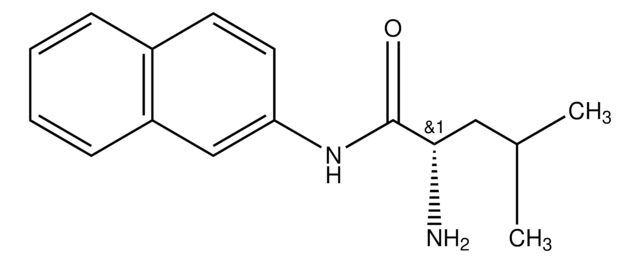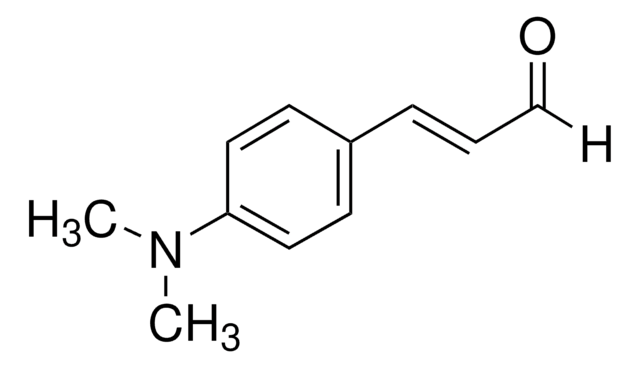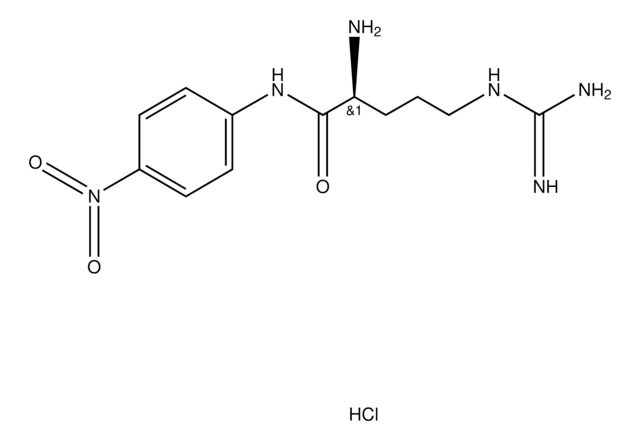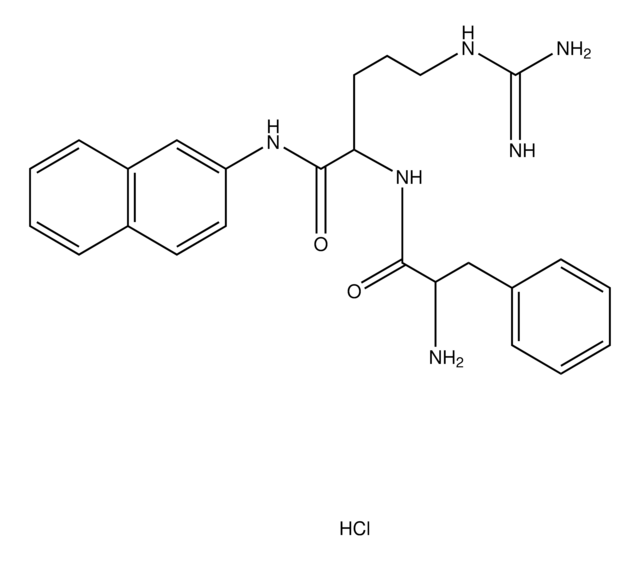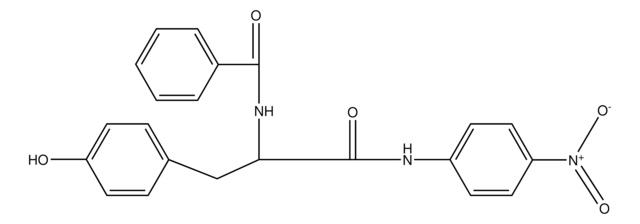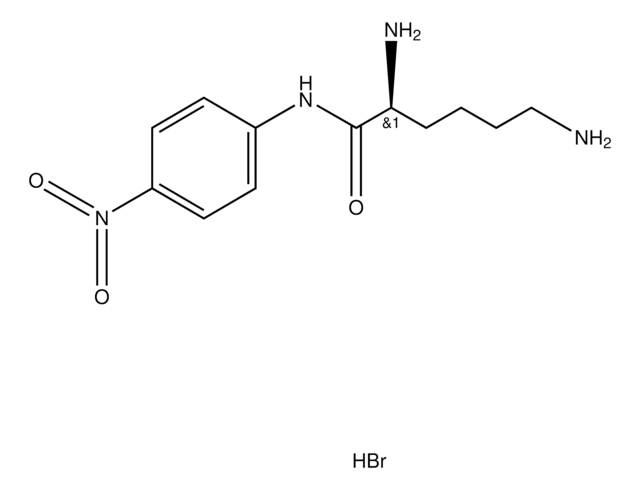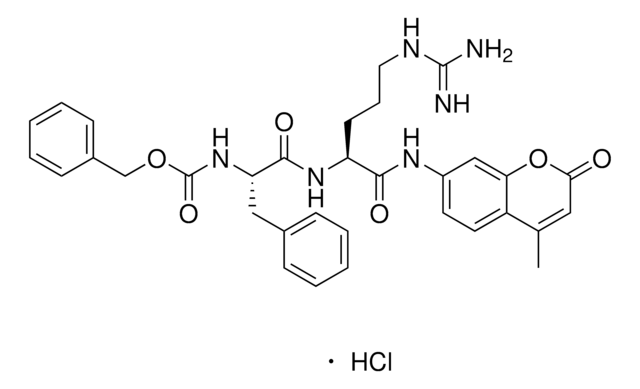B4750
Nα-Benzoyl-DL-arginine β-naphthylamide hydrochloride
trypsin substrate
Synonym(s):
BANA, Nα-Benzoyl-DL-arginine-2-naphthylamide hydrochloride
About This Item
Recommended Products
Quality Level
assay
≥98% (TLC)
form
powder
solubility
DMF: 50 mg/mL, clear, colorless to faintly yellow
storage temp.
2-8°C
SMILES string
Cl[H].NC(=N)NCCCC(NC(=O)c1ccccc1)C(=O)Nc2ccc3ccccc3c2
InChI
1S/C23H25N5O2.ClH/c24-23(25)26-14-6-11-20(28-21(29)17-8-2-1-3-9-17)22(30)27-19-13-12-16-7-4-5-10-18(16)15-19;/h1-5,7-10,12-13,15,20H,6,11,14H2,(H,27,30)(H,28,29)(H4,24,25,26);1H
InChI key
BNGRKDJZQIGWQF-UHFFFAOYSA-N
Looking for similar products? Visit Product Comparison Guide
Related Categories
Application
Biochem/physiol Actions
Substrates
Storage Class
11 - Combustible Solids
wgk_germany
WGK 3
flash_point_f
Not applicable
flash_point_c
Not applicable
ppe
Eyeshields, Gloves, type N95 (US)
Choose from one of the most recent versions:
Already Own This Product?
Find documentation for the products that you have recently purchased in the Document Library.
Customers Also Viewed
Our team of scientists has experience in all areas of research including Life Science, Material Science, Chemical Synthesis, Chromatography, Analytical and many others.
Contact Technical Service
